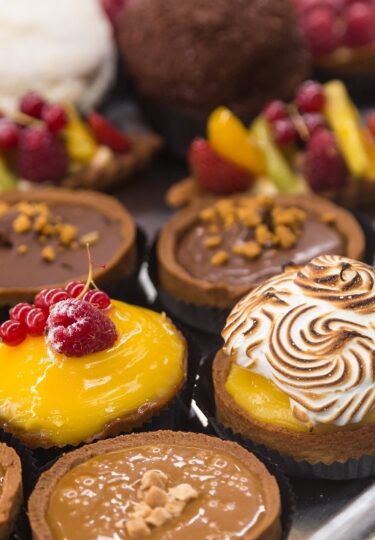Choosing the best desserts in the world is almost an impossible task. Not that it’s a job anyone would have trouble tackling.
From apple pie or peach melba, to mango rice or alfajores, there are plenty of contenders.
For every dish that makes the cut, another choice has to be left out. A classic such as sticky toffee pudding may seem an obvious choice, but that means no room for spotted dick, or Bananas Foster.
Here’s a list of the 25 best desserts in the world to discuss, seek out on your travels, or simply dream about.
Mango Sticky Rice, Thailand
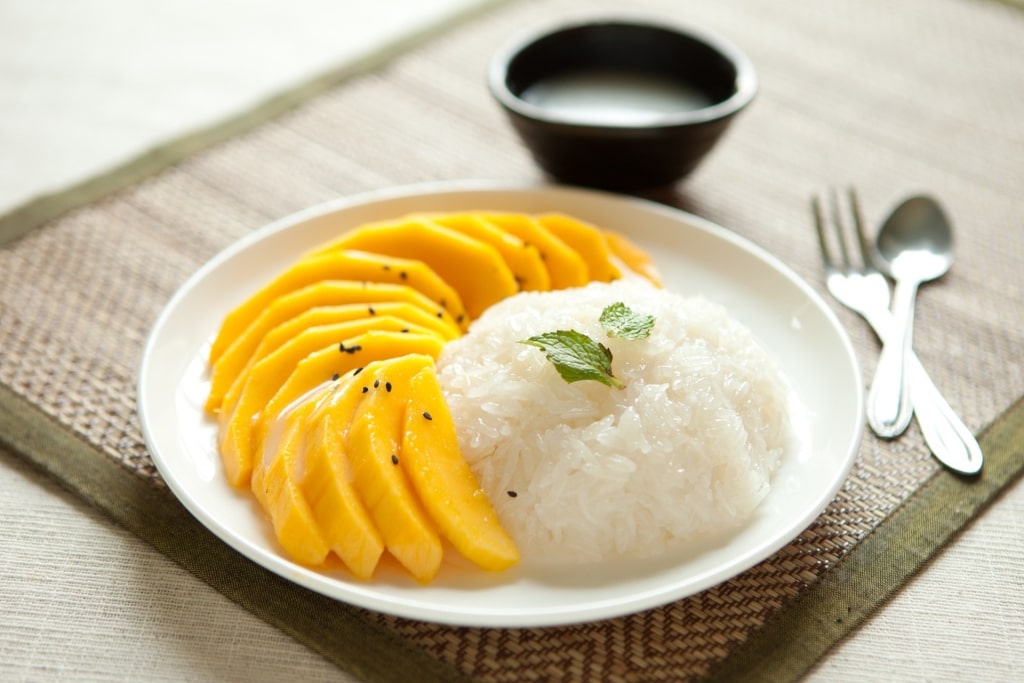
Mango sticky rice
Mango, sticky rice in coconut milk, the whole wrapped in a palm leaf; this popular food in Thailand could even be a healthy dessert. Well, that’s only if you ignore the amount of palm sugar added.
Suffice to say that the amount of sugar is subjective and mango can come in sweet or sour flavors, adding wonderful variety to this simple dish from Thailand.
Tres Leches Cake, Mexico & Central America
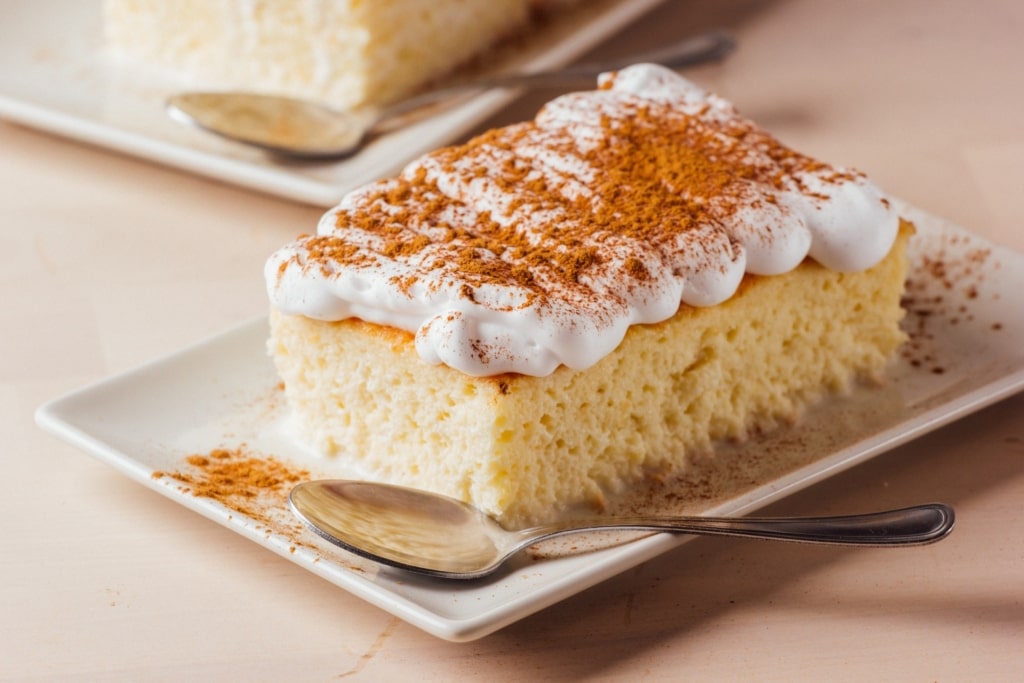
Tres leches cake
The “three milks” of this dessert are sweetened condensed milk, evaporated milk, and cream. A light egg sponge cake is soaked in all three, chilled, then given a thick cream and fruit topping.
Simple to make, tres leches is found throughout Latin America and the Caribbean—places where fresh milk was once hard to find. Its popularity may be because Nestlé put the recipe on condensed milk cans throughout the region in the 1940s.
Savijača, Croatia

Savijača
Many of Croatia’s dishes have migrated across the border from Austria, this sweet strudel being the country’s answer to Austria’s famous apfelstrudel.
You probably don’t need to know how much butter is added to make the super-thin pastry that is the mark of a good strudel. Wrapped around the filling of cheese and apple (or sometimes apricots or sour cherry, both grown in Croatia), it’s served warm with lots of rich cream, or cold with a scoop of ice cream.
Knafeh, Egypt
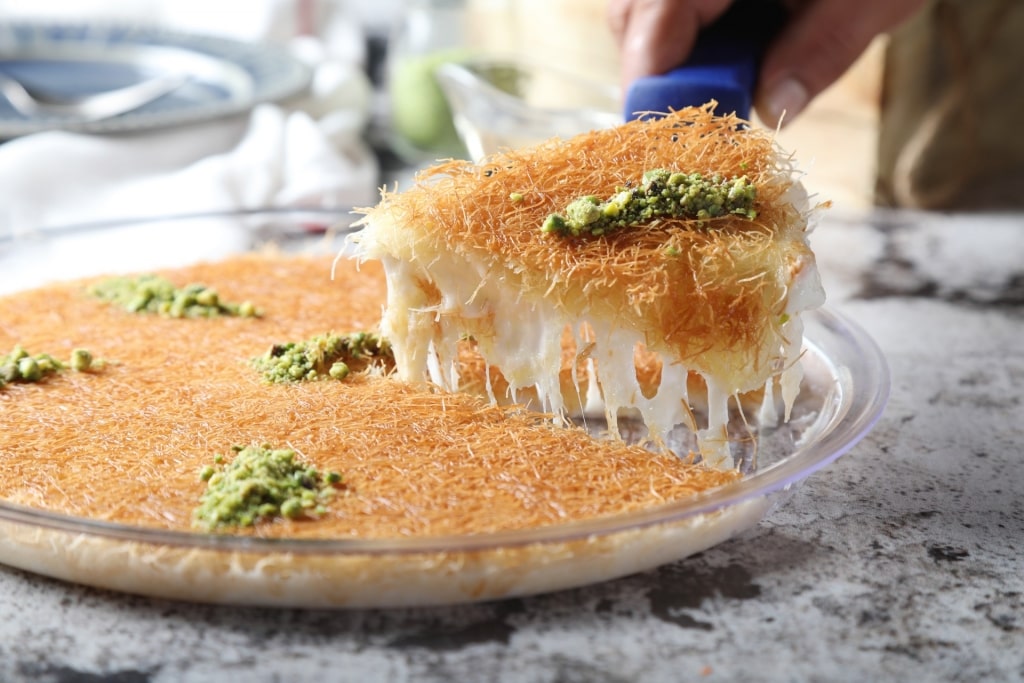
Knafeh
It’s hard to pin down the exact origins of this very sweet dessert. Certainly, its etymology suggests Egyptian roots, and you can enjoy it at its best in Cairo or Alexandria.
Knafeh is made of finely spun pastry threads, layered with sweet cream, or salty cheese, and topped with nuts. The whole is then soaked in a sugar syrup called attar, flavored with rose water or orange blossom.
Read: The Ultimate Egyptian Food Guide
Tarte au Citron, France
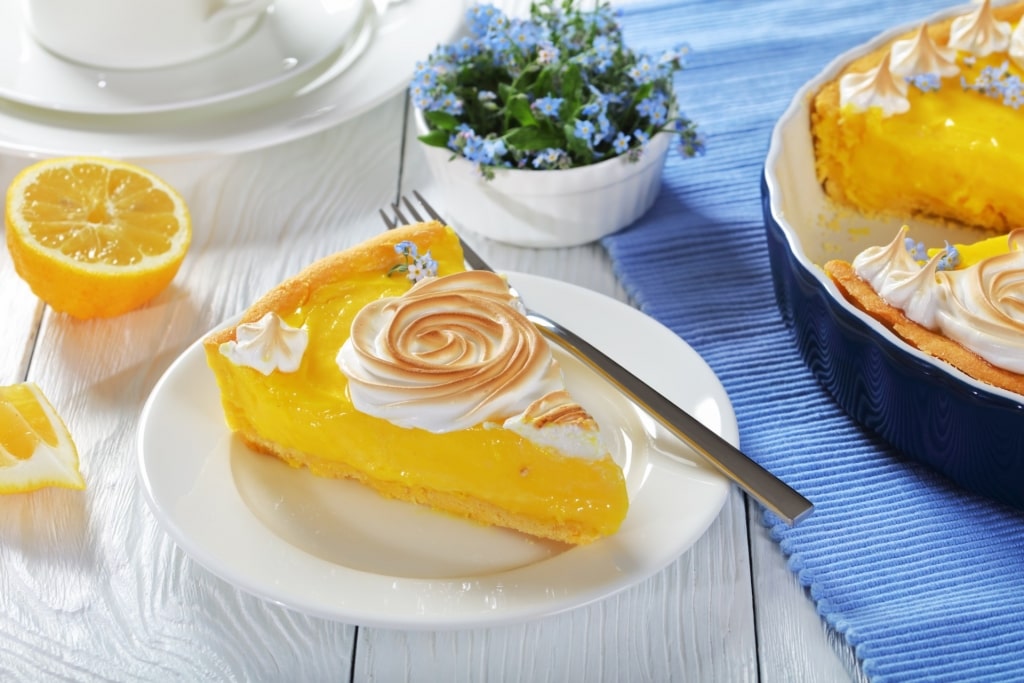
Tarte au citron
Lemon cream, the sour lemon balanced by some sugar, in a crumbly pastry makes for the perfect contrasts of taste and texture. Tarte au citron is a simple dish, but a real test of the chef’s skills to make well.
The lemon cream filling is an egg custard, flavored with lemon and more sugar than you really want to know. Let’s just say that a generous dollop of cream can’t do any more harm.
Oliebollen, Netherlands
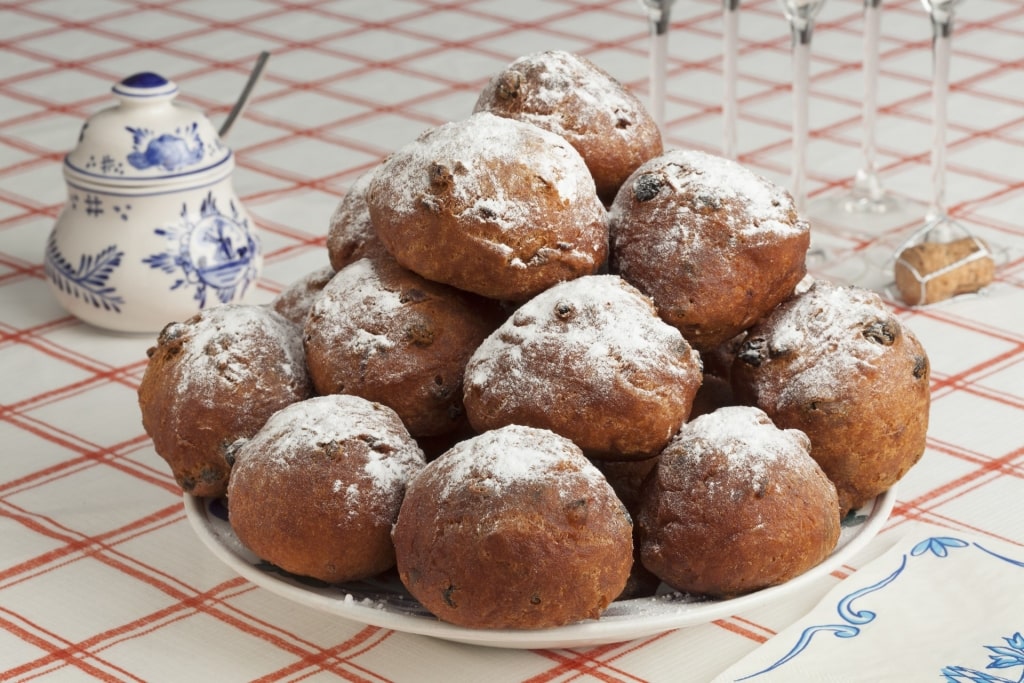
Oliebollen
Oliebollen are a very more-ish donut ball, the size of a billiard ball. Dusted with sugar, they are filled with raisins, and sometimes nuts, and preferably served hot.
They are traditionally a New Year’s Eve treat in The Netherlands, but can now be found outside the holiday season—often served as a street snack from food stalls. Variations around the world range from Iceland’s astarpungar to Italy’s frittoli.
Pasteis De Nata, Portugal
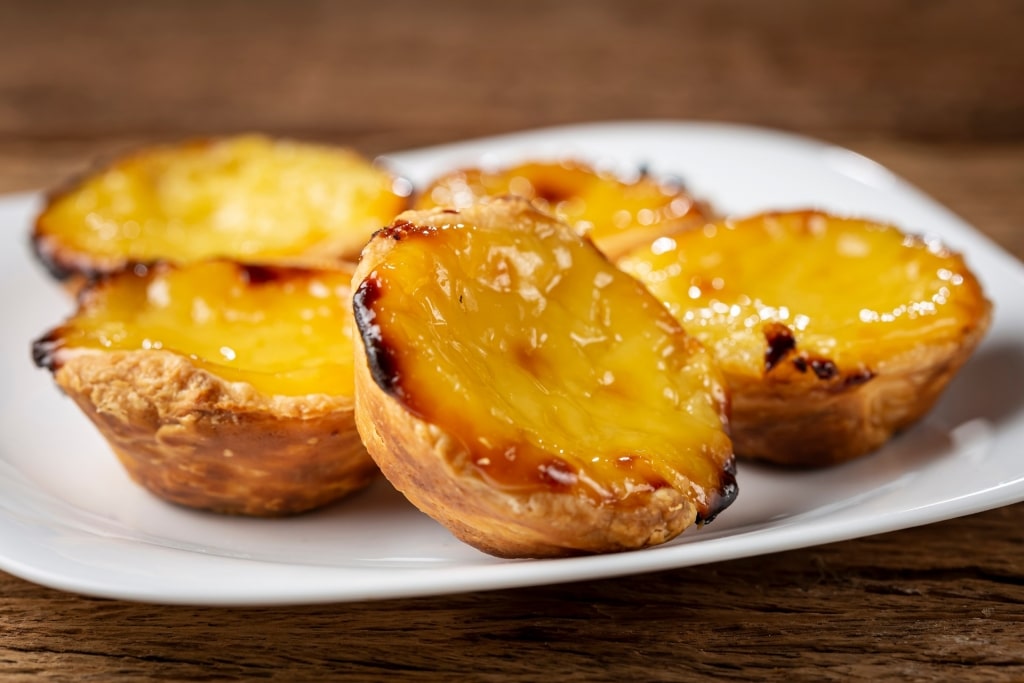
Pasteis de nata
First made by nuns from the yolks left after the whites were used to starch vestments and altar cloths, these egg tarts have conquered the world. From Lord Stow’s in Macao to the Chinese “dan tats”, Portuguese traders left the recipe wherever they went.
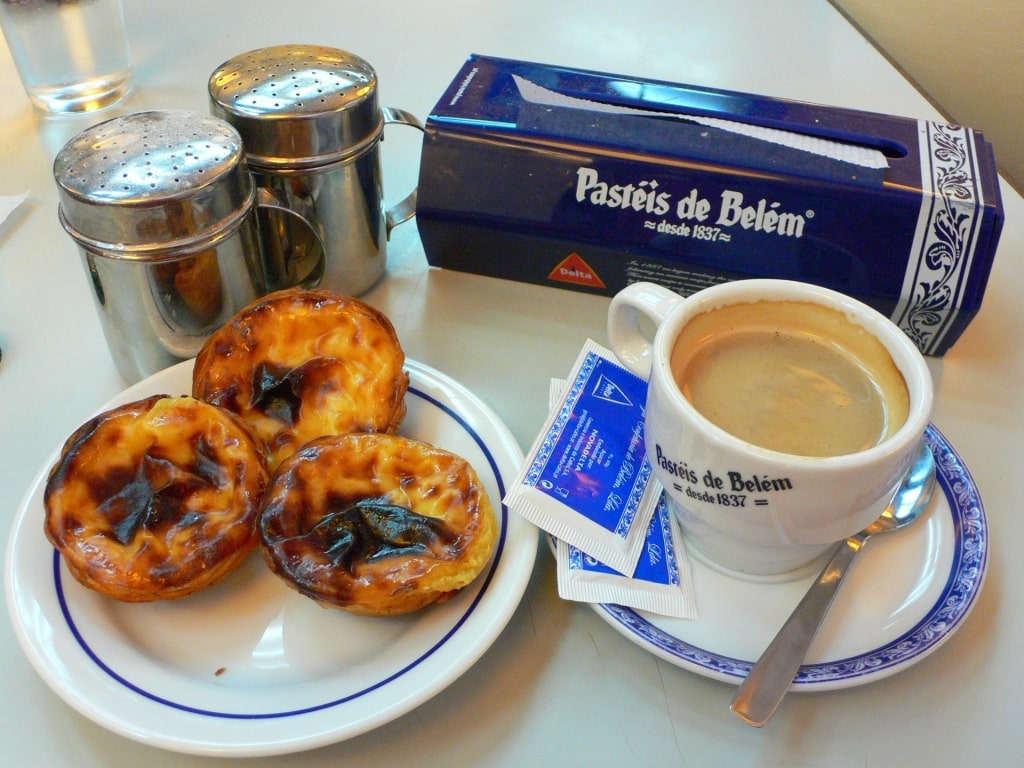
Pastéis de Belém Photo by Heather Cowper on Wikimedia Commons, licensed under CC BY 2.0
The best remain those on sale in their hometown of Belem, outside Lisbon. There, called pastéis de Belém, they come with an optional sprinkling of cinnamon. Locals eat pasteis de nata in the morning, with their coffee, but the little tarts are so delicious you can enjoy them at any time of day.
Read: What to Eat in Lisbon
Sticky Toffee Pudding, Britain
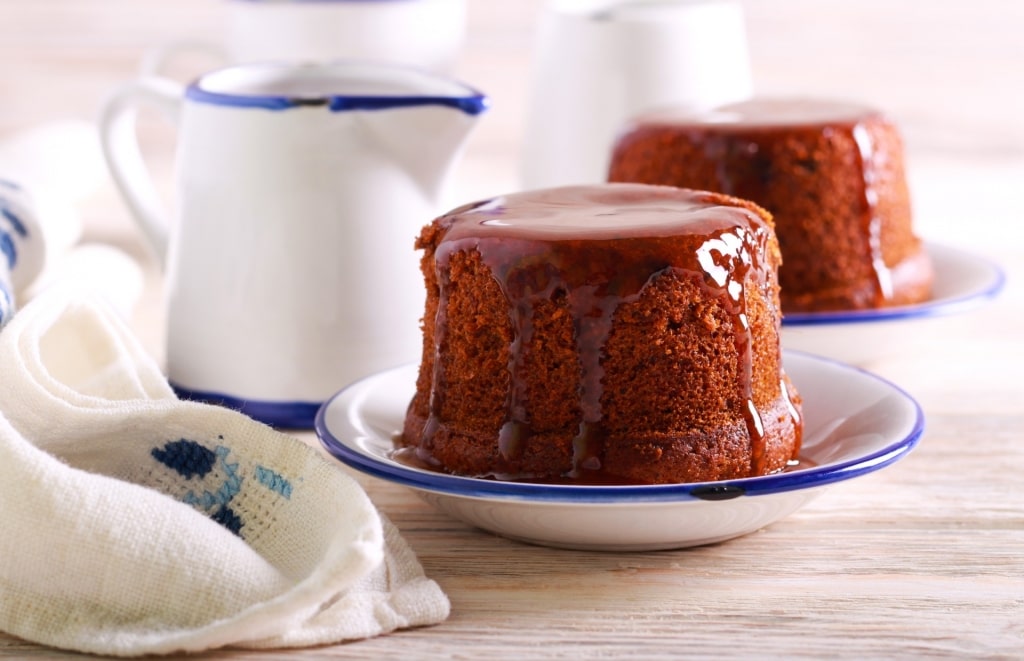
Sticky toffee pudding
Wet British winters are the perfect excuse to indulge in the comfort of warm desserts such as an “STP”. A soft sponge, full of chopped dates, is covered in rich caramel sauce and served with hot egg custard.
The toffee sauce traditionally derives its flavor from treacle, the thick dark molasses that are a by-product of sugar making. Nowadays, it’s more common to use brown sugar with a double cream base.
Tarte Tatin, France
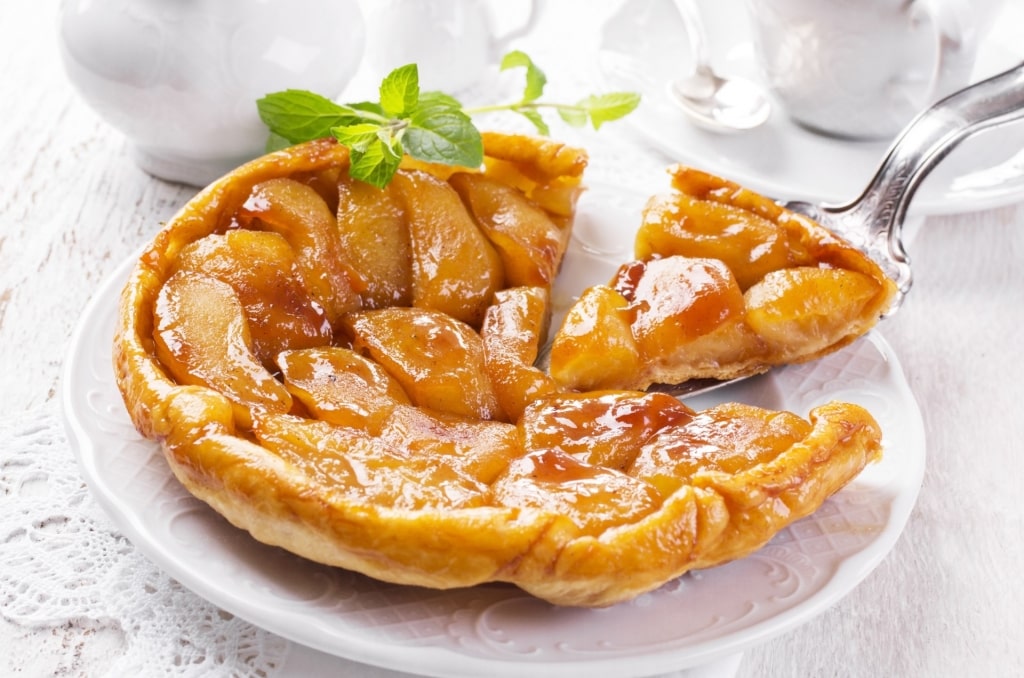
Tarte tatin
This apple pie derives all its pleasures from being made upside down. A puff pastry topping seals in the flavor of the apples, caramelized in extra sugar, while being crisped by the heat of the oven.
Once flipped to serve, the sweet apples are balanced with crème fraîche, with the firm pastry becoming a tasty base for both. It was created in the 1880s by two Tatin sisters at the Hôtel Tatin outside Paris.
Cannoli, Sicily
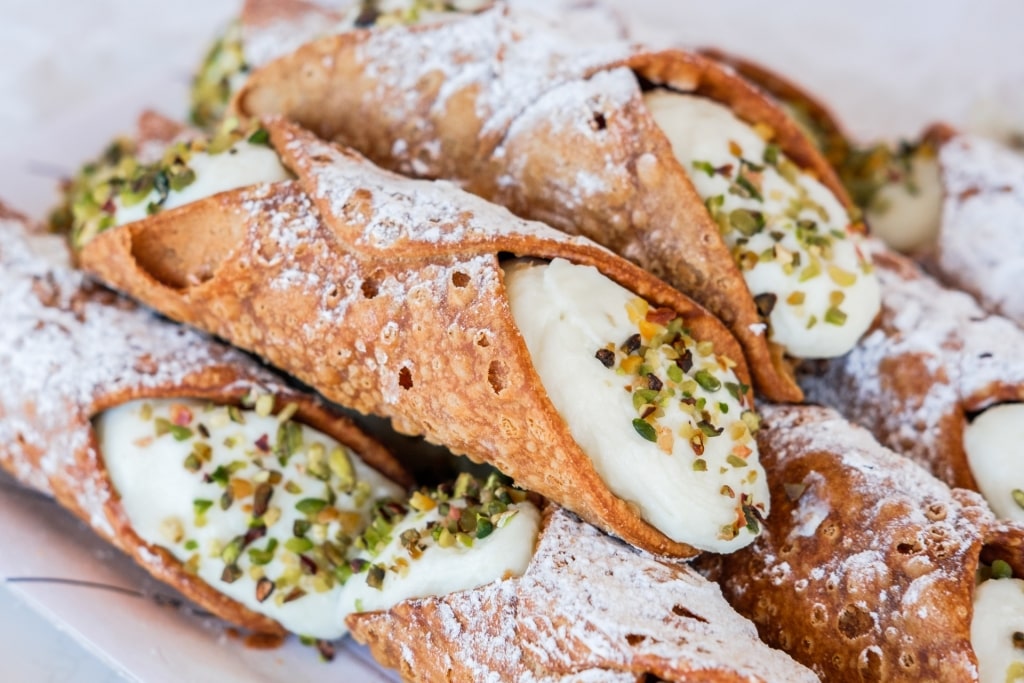
Cannoli
A crisp, fried pastry roll filled with soft cheese, this classic Italian dessert has Arab roots. You’ll still find variants throughout the Middle East, with added nuts or chopped, candied citrus fruit.
The filling is usually ricotta, made from sheep’s milk. It was once an Easter treat but is now popular year-round.
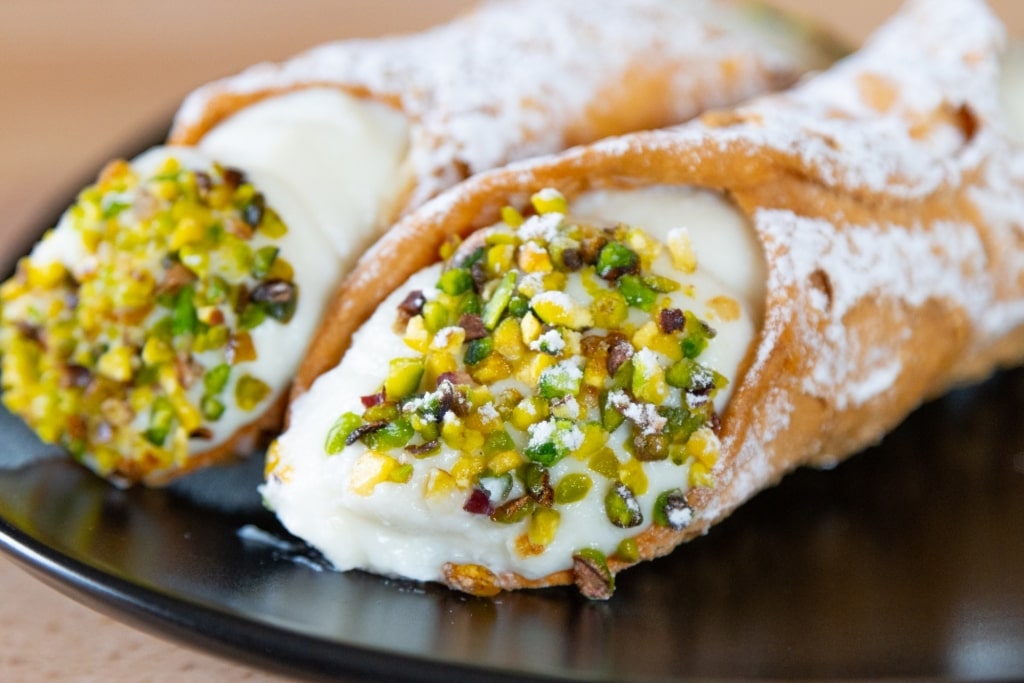
Cannoli
There’s a lot of art in making the thin and fragile pastry. A “secret” ingredient used by many cooks is a splash of white wine. If you’re buying cannoli, a shop that takes its pastries seriously will fill them on the spot, rather than offering you the already finished product.
Read: An Insider’s Look at Italian Food Culture
Crème Brûlée, France

Crème brûlée
Crème brûlée is a deceptively simple dessert that’s hard to perfect. The right balance of custard topped with the proper thickness of burnt sugar is key.
The custard has to be soft, but firm enough to cling to the spoon. The topping has to be bitter and crisp, with a marked yet harmonious contrast to the base.
Should the custard be made in a pot or oven, and must the top be seared? Only more taste tests can tell.
Rum Cake, Caribbean
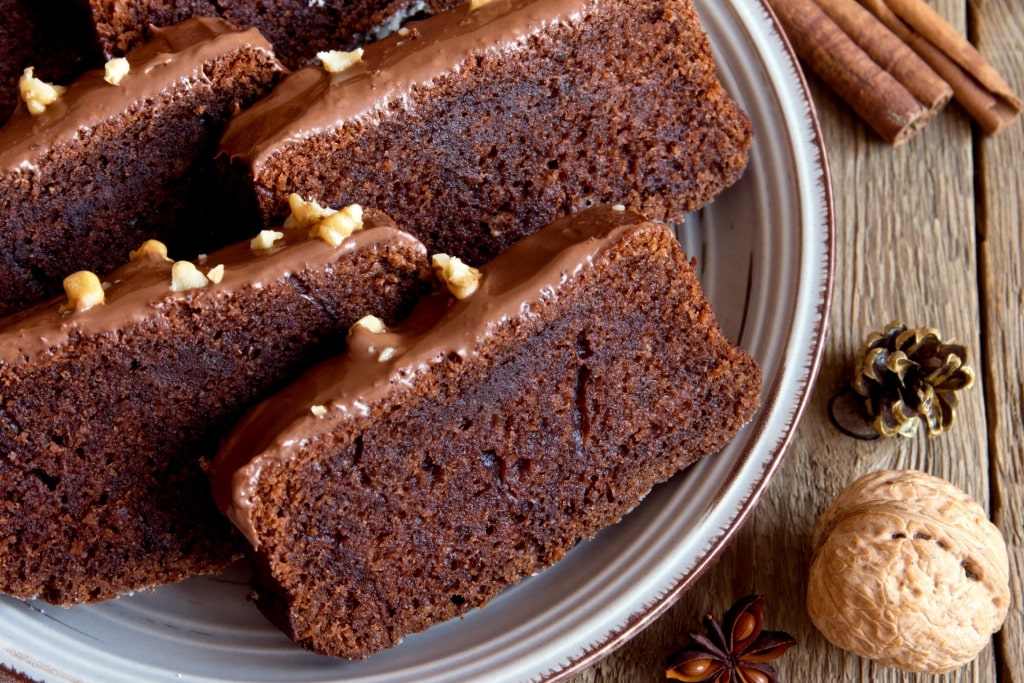
Rum cake
Rum cake probably arrived in the Caribbean with the English Royal Navy, where ship’s biscuits were dipped in dark rum to soften them. Today’s version is far removed from those basic origins, but remains at heart a dense sponge cake soaked in Caribbean rum.
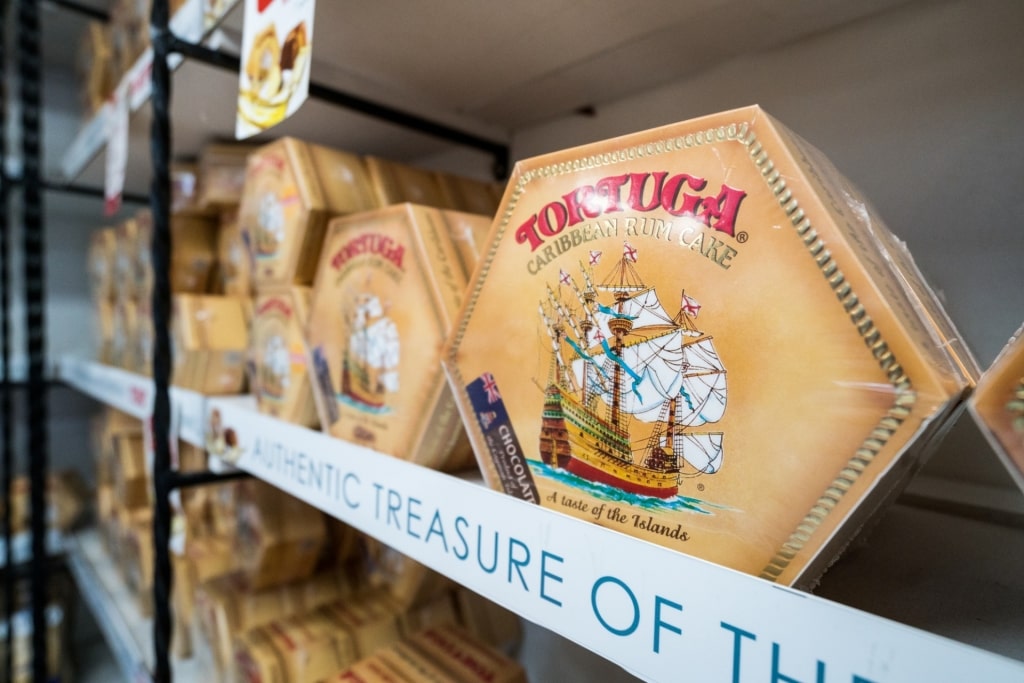
Tortuga Caribbean Rum Cake
One of the most popular commercial brands is Tortuga Caribbean Rum Cake, originally made in the Cayman Islands. Launched in 1987, it’s now exported all over the world.
Read: The Ultimate Guide to Caribbean Cuisine
Trifle, Britain
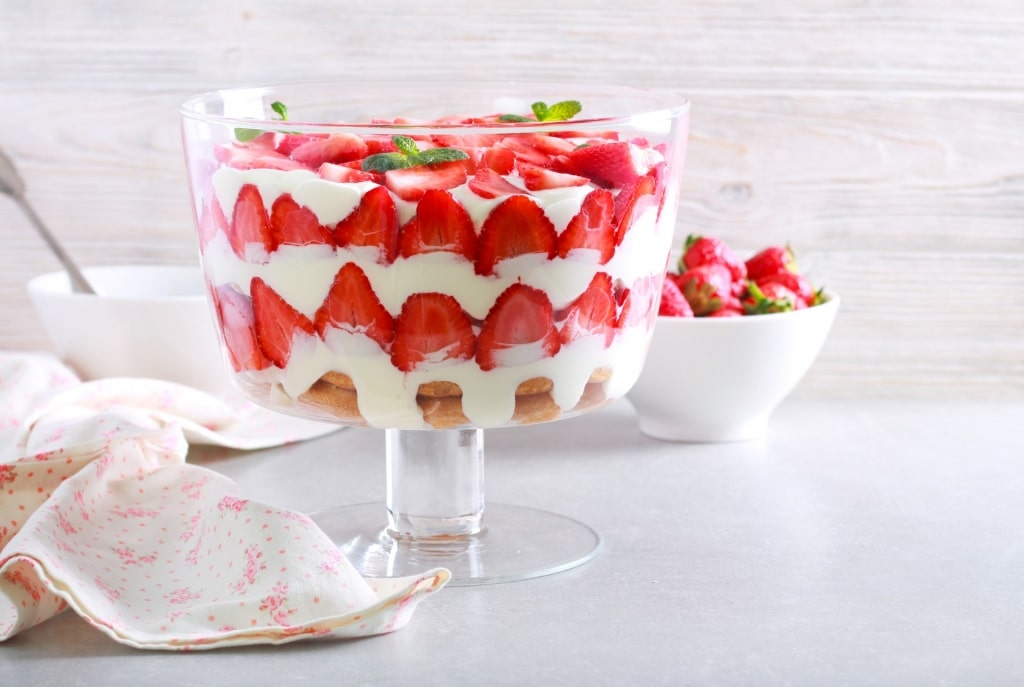
Trifle
This classic English dessert is made from layers of sponge cake, soft fruit, Jell-O (optional), and egg custard. It’s common to soak the sponge in sherry for an adult version, and a thick topping of whipped cream is a given.
The whole looks great in a bowl but dissolves into a lovely mix of colors and textures when served. That’s particularly appealing to children, and perhaps the child in everyone.
Baklava, Turkey
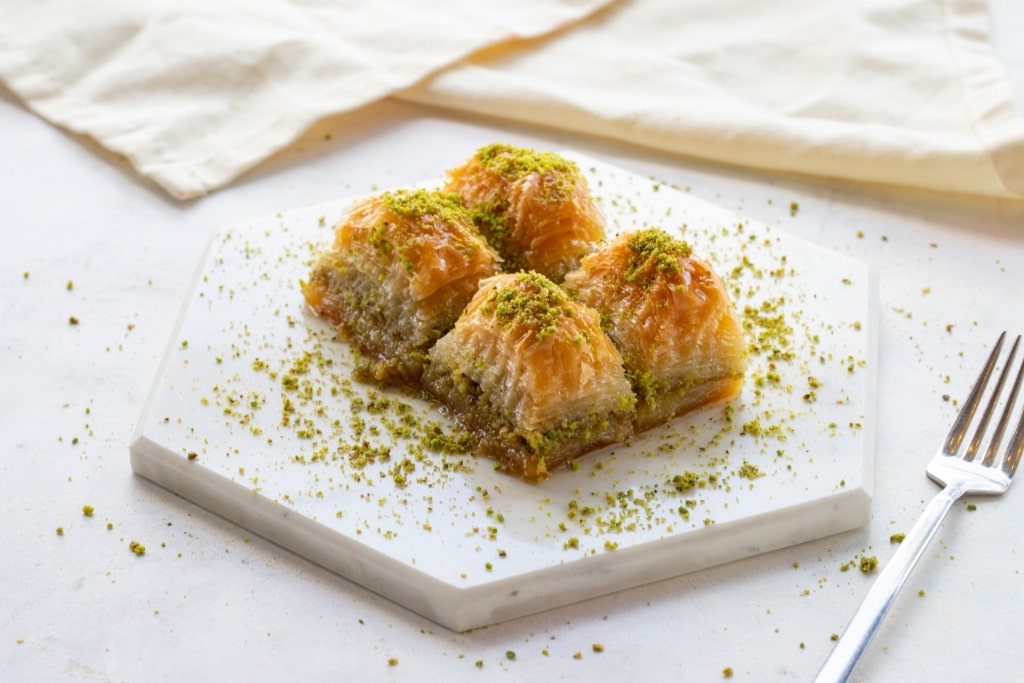
Baklava
Another layered dessert, Baklava is made from filo pastry, chopped nuts, and lots of sugar syrup or honey. It’s a staple of pastry shops in this sweet-toothed country, as well as throughout the Mediterranean and Arab worlds.
The most common nuts are walnut or pistachio, but every country has its own subtle variations. In Greece, for example, baklava is traditionally made with 33 layers, one for every year Christ lived on earth.
Pavlova, Australia & New Zealand
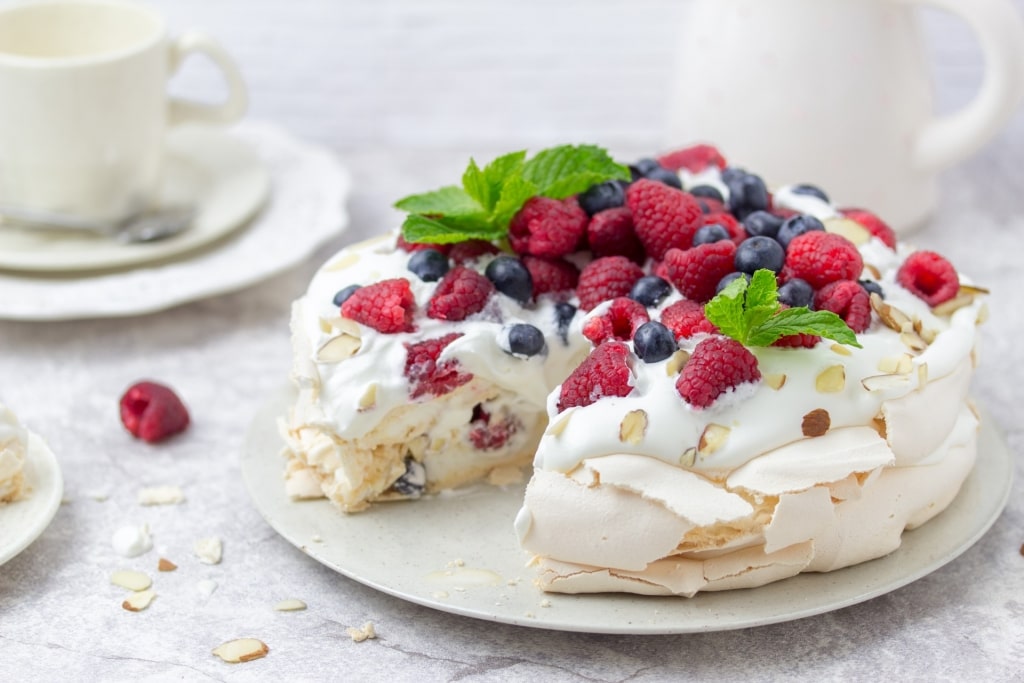
Pavlova
Australia and New Zealand argue over which country invented the delicious pavlova. The English point out that it’s just a large Eton mess, and Austrians that it’s a simplified Spanische windtorte.
What they can all agree on is that the ingredients are a baked meringue, topped with piles of whipped cream and fruit. It’s also agreed it was named for Russian ballerina Anna Pavlova, who toured Australia and New Zealand in the 1920s.
Gulab Jamun, India
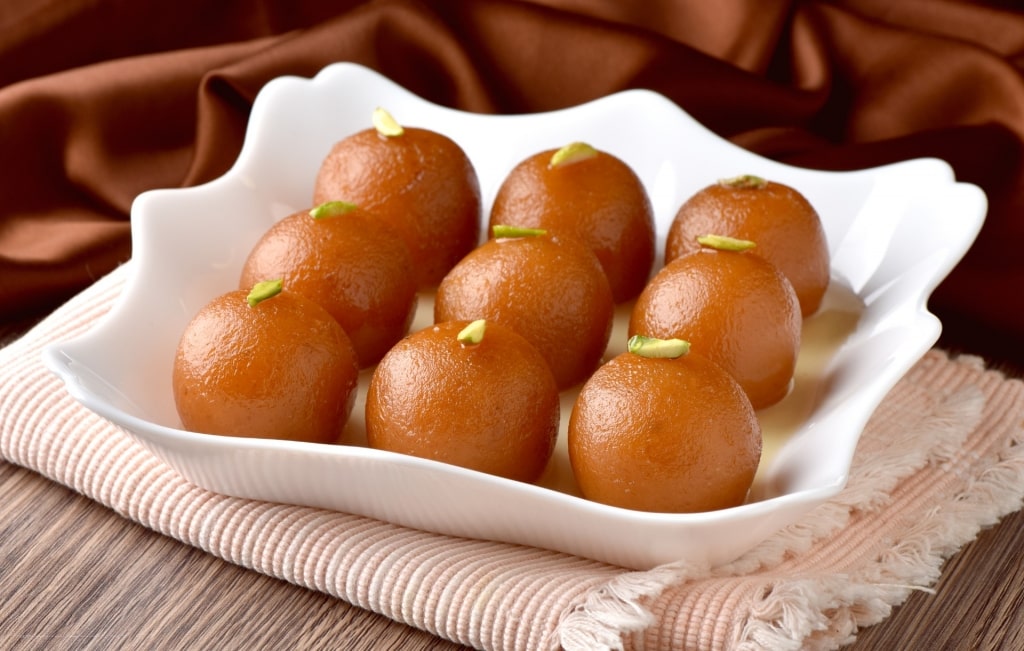
Gulab jamun
This popular dessert has followed the South Asia community around the world, and you’ll find it from the Maldives to Malaysia. Most commonly associated with India, its name points to Persian (Iranian) origins.
It’s a deep-fried donut, with a dough made from flour and khoya, made by simmering milk for hours. Even more flavor comes from slow cooking in ghee (clarified butter), with a soaking in flavored sugar syrup.
Tiramisu, Italy
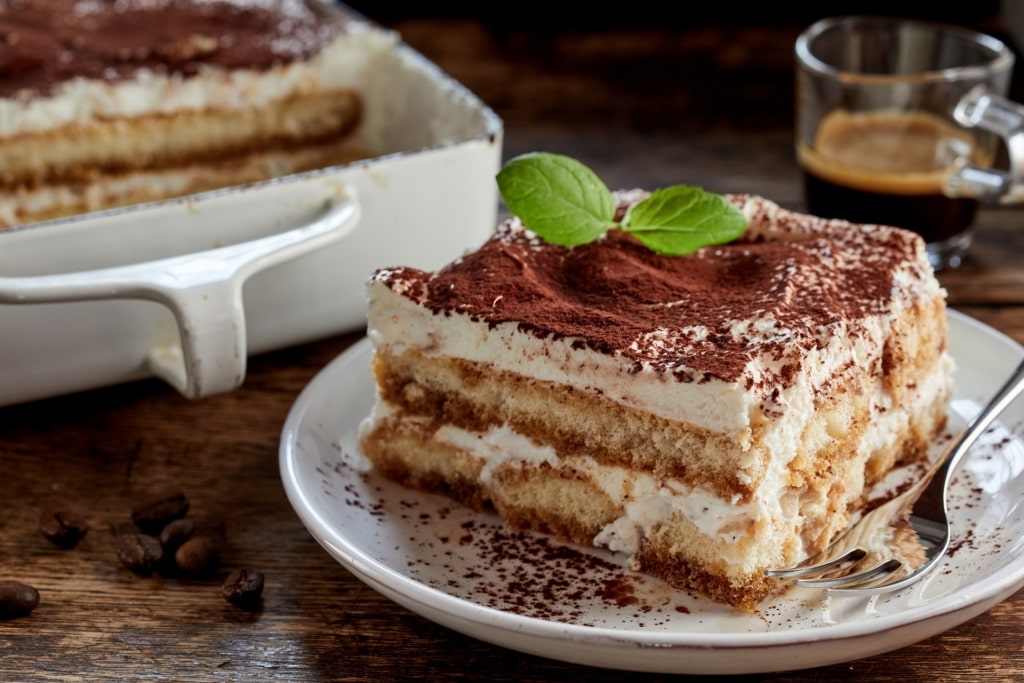
Tiramisu
Sponge fingers, soaked in strong coffee, topped with mascarpone cheese and sprinkled with cocoa are the base of this popular Italian dessert. Italy, like France or Britain, could supply a list of 25 best desserts on its own, and this is yet another worldwide favorite.
One surprising thing the official Tiramisu World Cup agrees on is that there should be no alcohol, despite the fact that many establishments use coffee liqueur in their tiramisu. The name tiramisu means “pick me up”, a reference to the caffeine in the coffee and cocoa.
Mochi, Japan
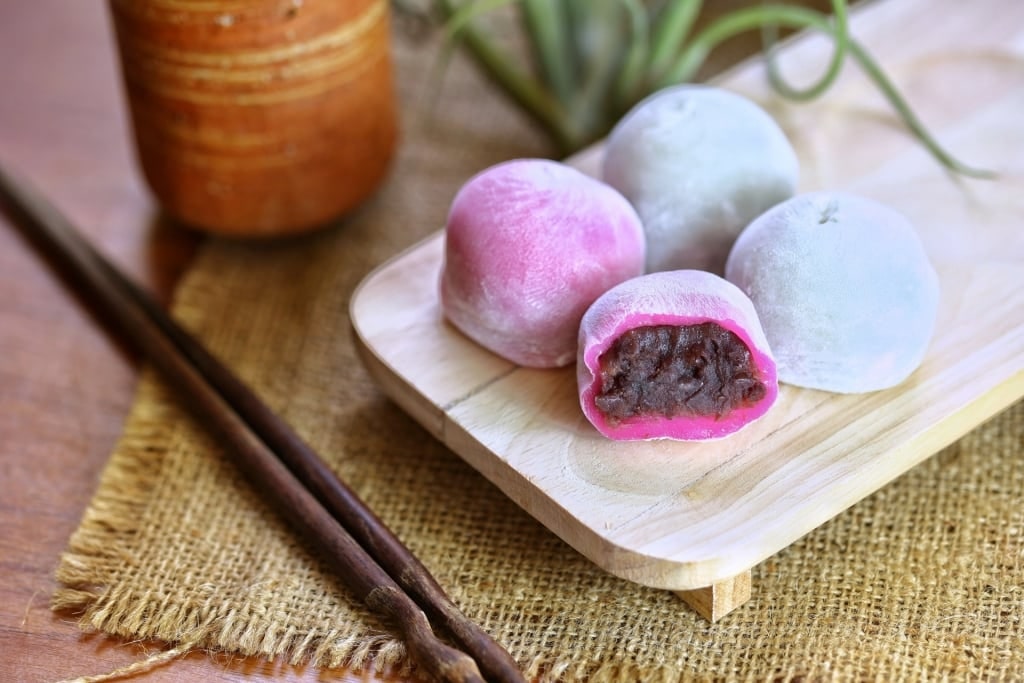
Mochi
The making of mochi in Japan, involving pounding lots of short-grain rice into a large gelatinous whole, is a photogenic process you may well have seen on screen. The ceremony of creating the dish is called mochitsuki.
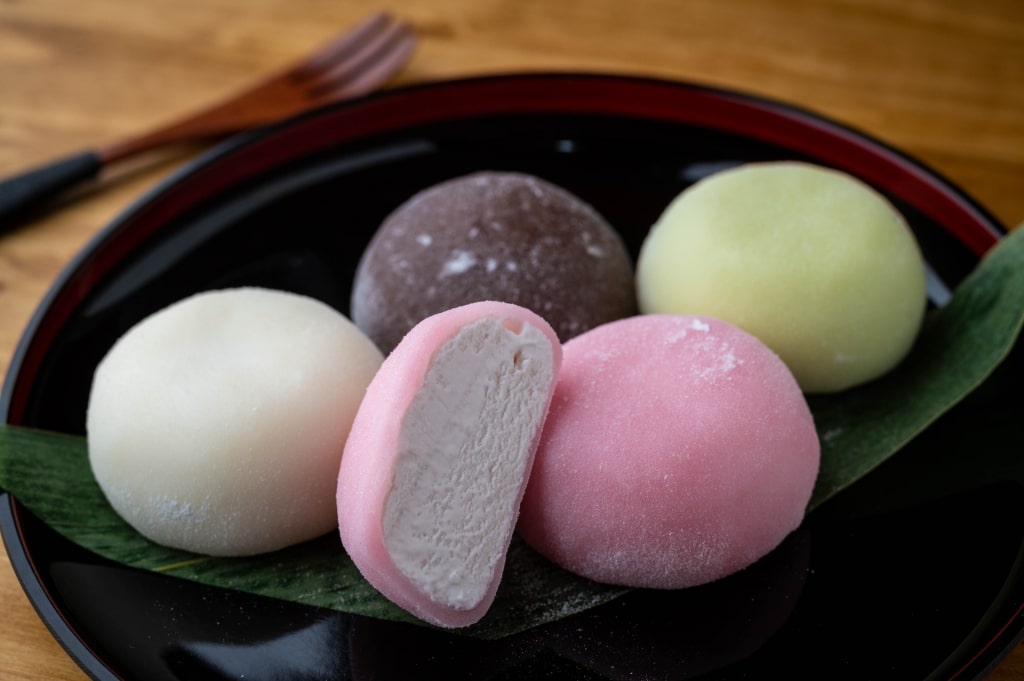
Mochi ice cream
The result is then shaped into rice balls around central ingredients such as sweet red bean paste, or even ice cream. The rice itself is often subtly colored with green tea powder or other food dyes.
Read: Japan Food Guide
Flan, Latin America
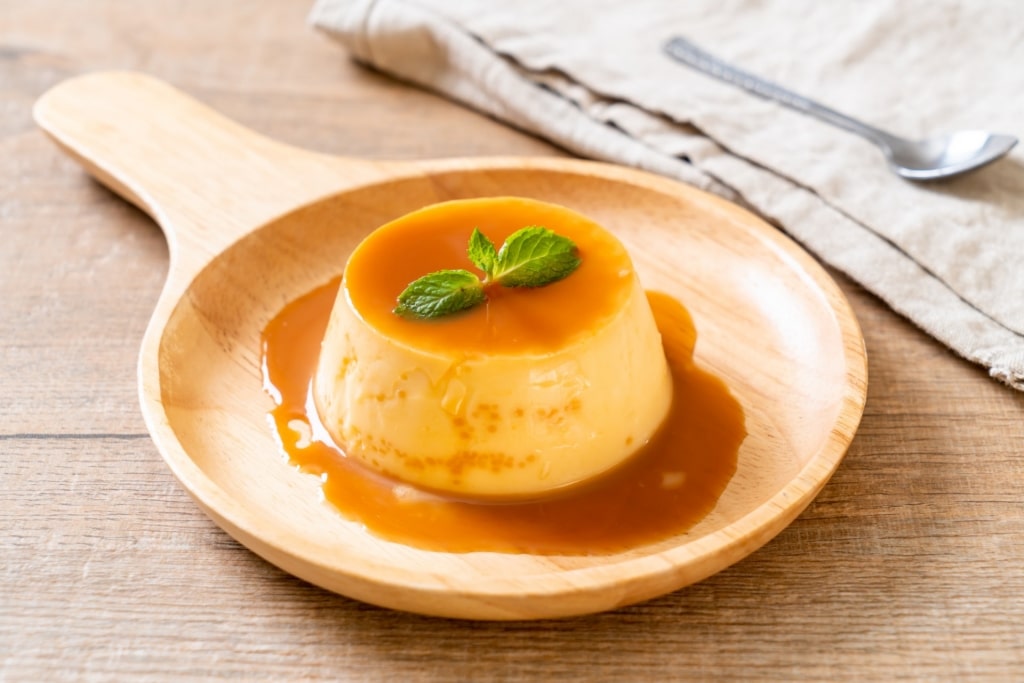
Flan
A sweet egg custard, covered with a film of bitter dark caramel, makes the flan. Also well known under its French name of crème caramel, it came to Mexico from Spain, and has now spread throughout Latin America to become a distinctive regional dish.
In Mexico, it’s the perfect way to cool down after a hot chili dish. In Puerto Rico, you’ll find it in flavors ranging from sweet plantain to pina colada.
New York Cheesecake, USA
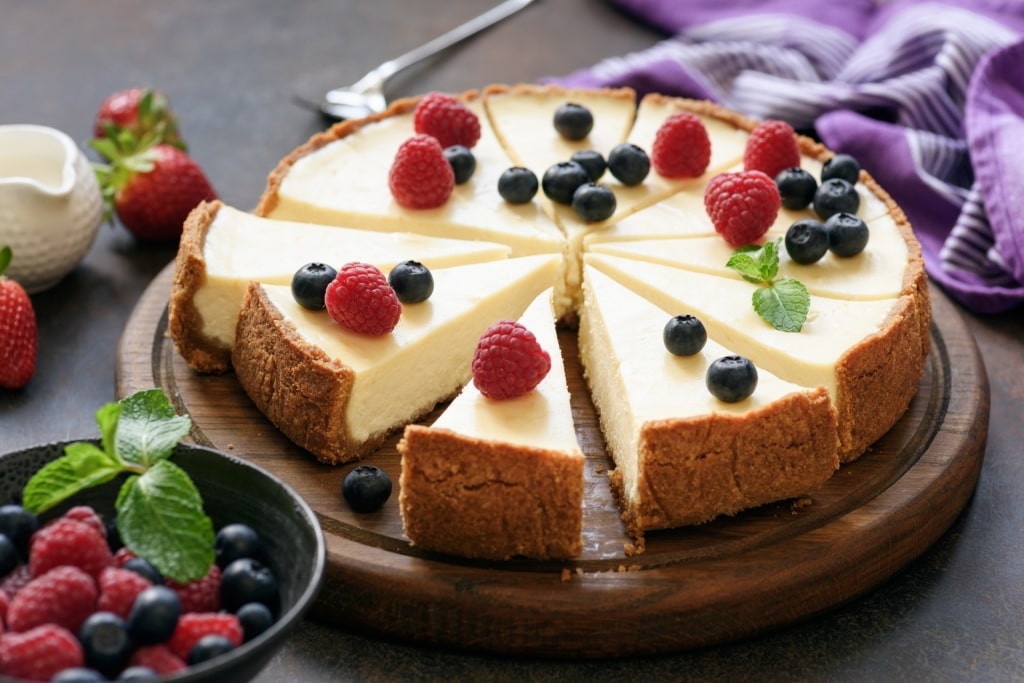
New York cheesecake
Many American desserts originated in Europe, and cheesecake has German (and even Ancient Greek) roots. Be that as it may, it’s New York dairy farmer William Chester who in 1872 perfected a smooth cream cheese.
Today, “Philadelphia” cream cheese (more rural Philadelphia was chosen as a marketing brand) remains the key ingredient. With a base of crumbled graham crackers and a topping of jellied strawberries, it’s now common throughout North America.
Dulce De Leche Ice Cream, Argentina
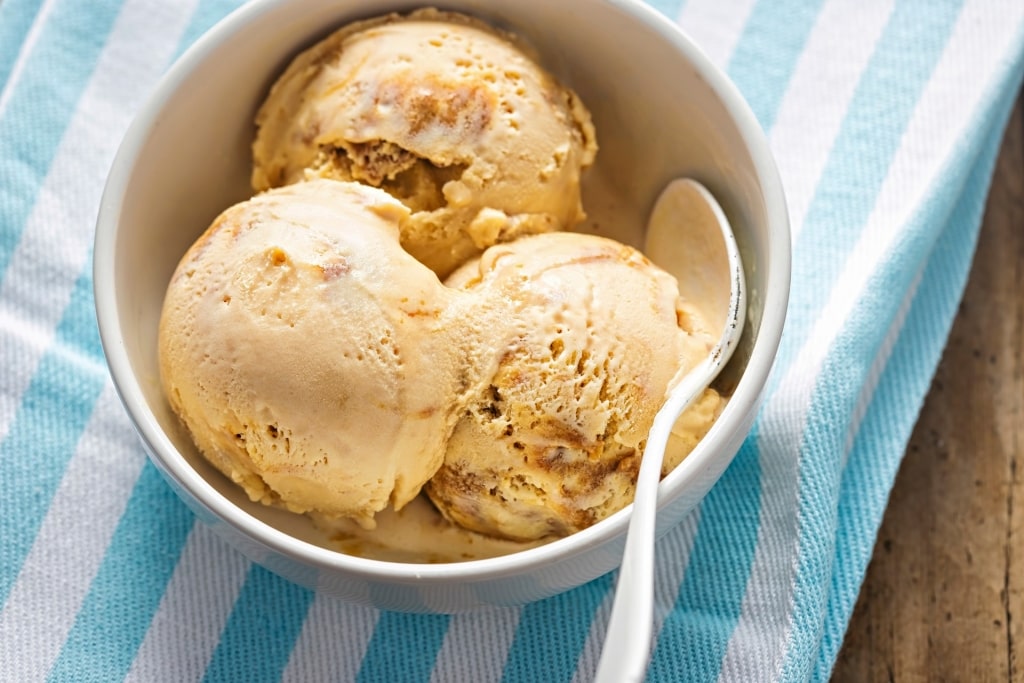
Dulce de leche ice cream
With a taste similar to caramel, dulce de leche is made by gently cooking milk until it becomes a smooth paste. Literally “sweet from milk”, it’s used as a spread on bread, sandwiched into alfajores cookies, and heated to pour over pancakes or waffles.
Where it really comes into its own is as a dessert. Italians brought gelato to Argentina, but the locals made it their own with a dulce de leche sauce or flavoring.
Lamingtons, Australia
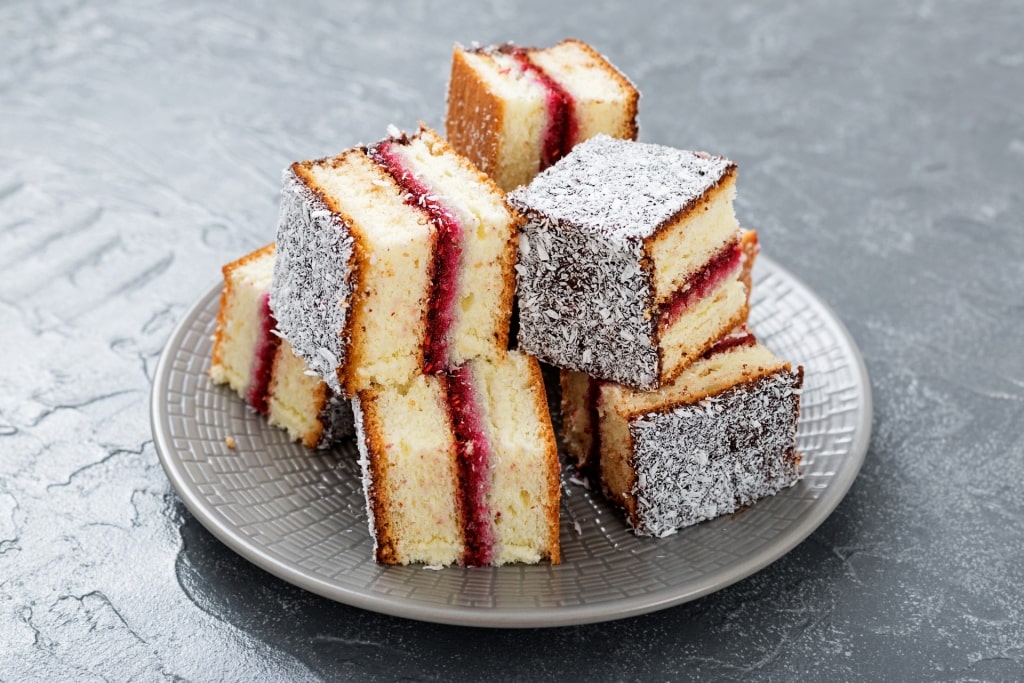
Lamingtons
Take some sponge cake, cover it with chocolate sauce, and roll it in desiccated coconut. Congratulations, you’ve just made a Lamington—and potentially some Australian friends.
It’s named for Lord Lamington, governor of Queensland from 1895 to 1901, and where July 21st is now National Lamington Day. However, his French-born chef, Armand Galland, was the actual inventor of this cake, which is popular for afternoon tea.
Cendol, Malaysia/Indonesia
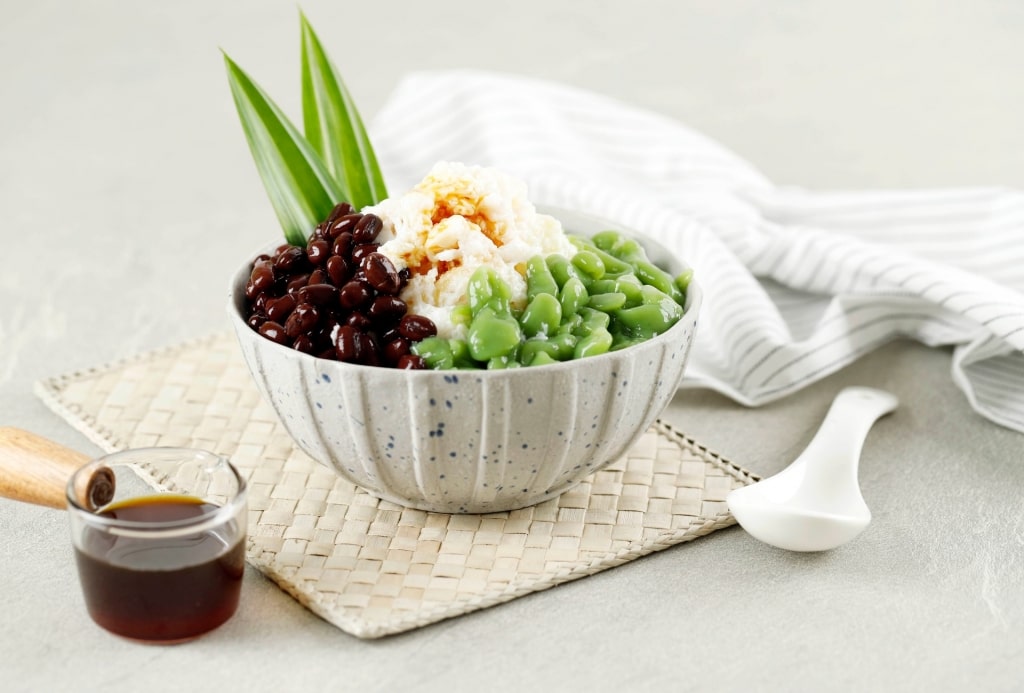
Cendol
Claimed by both Malaysia and Indonesia, cendol is a type of sorbet made of shaved ice with coconut milk. This base is then flavored with palm sugar syrup, adding a caramel taste.
Rice-flour jelly worms, given a luminous green color by vitamin-rich pandan (screwpine) juice, make a colorful topping. In Singapore, sweetened red beans are also added, and there are other interesting local variations in Thailand, Myanmar and Vietnam.
Key Lime Pie, Key West, Florida
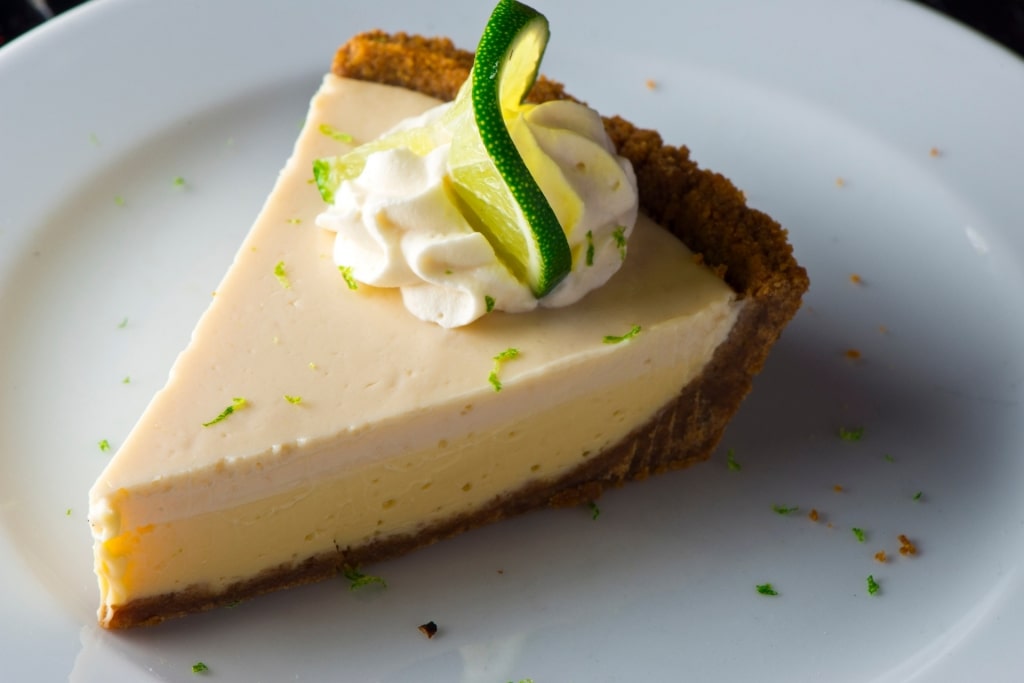
Key lime pie
A lemon tart (see above) made with limes is the basic Key lime pie found in Key West. Legend has it that Florida sailors make it to protect themselves from scurvy.
Key limes are a smaller, hybrid version of the more common Persian lime, and were brought to Florida by the Spanish. Most of Florida’s commercial Key lime trees disappeared after a 1926 hurricane, so bottled Key lime juice is the more usual flavoring today.
Bingsu, Korea
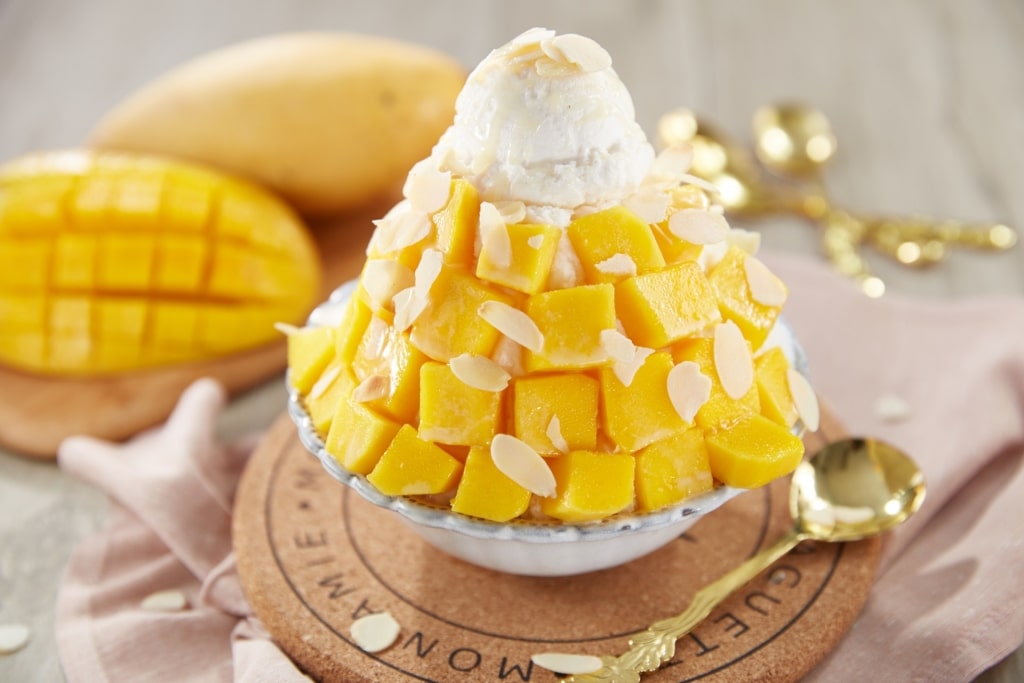
Bingsu
Bingsu, like cendol, or Japan’s Kakigori, is a shaved ice dessert, topped with ingredients such as chopped fruit, condensed milk, or fruit syrup. It’s a healthy summer alternative to ice creams.
The dish is spreading throughout Southeast Asia—partly because its colorful looks are very Instagram friendly. Like ice cream, its variations are limited only by the imagination, and you’ll find everything from strawberry to green tea toppings and flavorings.
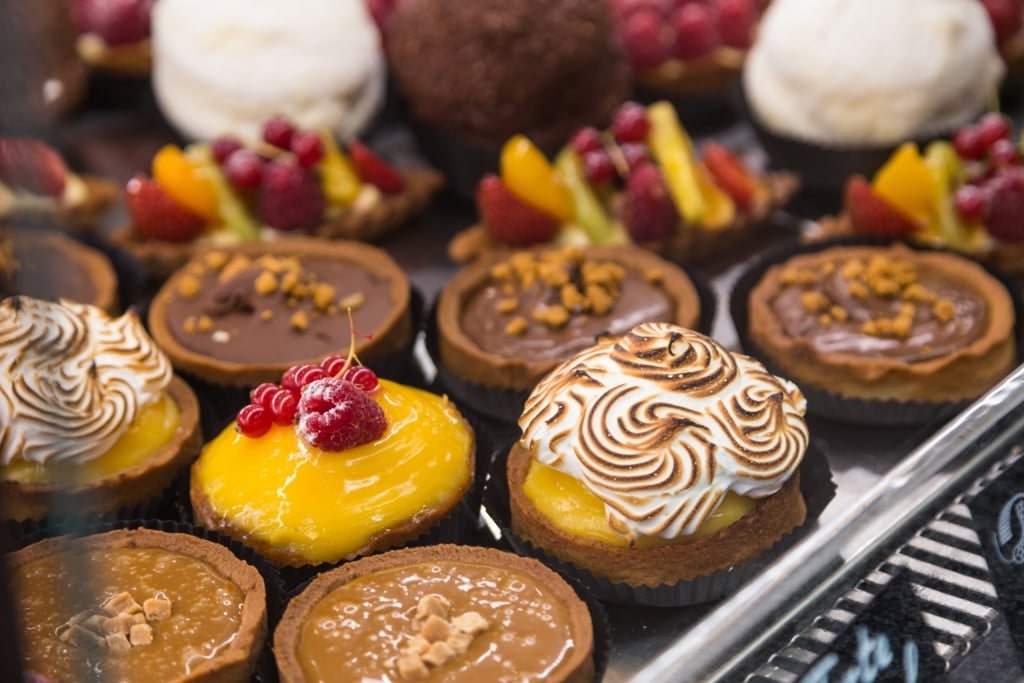
Tempted by this list of the best desserts in the world to taste them all for yourself? Then look through our cruise itineraries to find a vacation that will whet your appetite.
